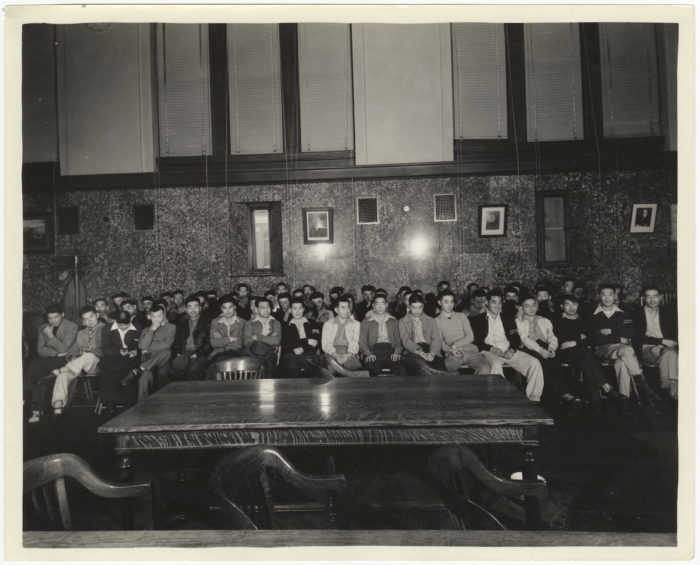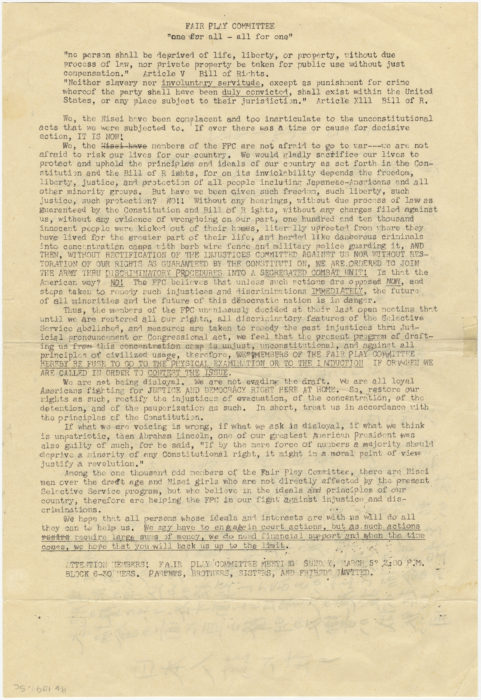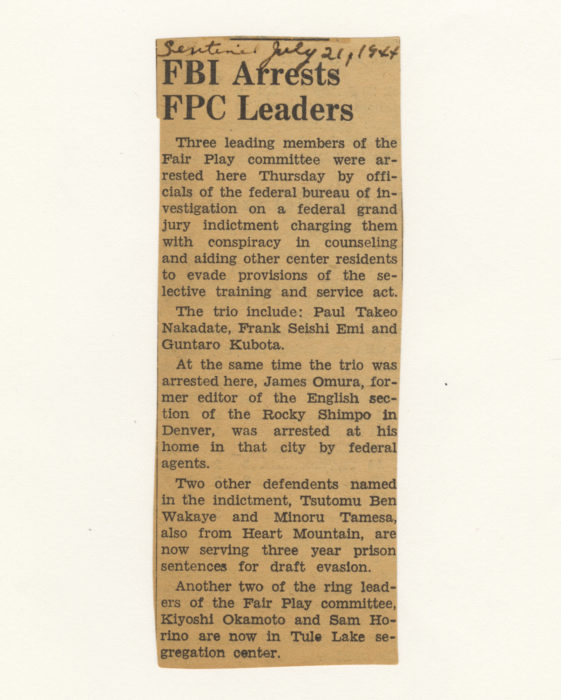Citizenship1

Japanese American National Museum, Gift of Frank S. Emi (96.109.27)

Fair Play Committee bulletin, 1944, Japanese American National Museum, Gift of Frank S. Emi (96.109.5C)
The young men in the photograph were members of the Fair Play Committee (FPC), and this document is one of their bulletins. Look closely at it.
- What is it called?
- Which parts of the Bill of Rights does it quote?
At the Heart Mountain War Relocation Center in Wyoming, the FPC formed under the leadership of Kiyoshi Okamoto. Growing to nearly 60 members, the FPC represented the most organized response to the military draft among the 10 camps. In addition to paying a $2 fee, FPC members had to affirm that they were US citizens, loyal to the United States and willing to serve in the US Army upon restoration of their legal rights. In other words, the FPC advocated that incarceration violated the constitutional rights of its members, US citizens who would gladly fight in the military upon restoration of their freedom and civil liberties.
The end of the second paragraph of this document states:
The FPC believes that unless such actions are opposed NOW, and steps taken to remedy such injustices and discrimination IMMEDIATELY, the future of all minorities and the future of this democratic nation is in danger.
Frank S. Emi video interview (May 9, 2006), Japanese American National Museum, DiscoverNikkei.org

Japanese American National Museum, Gift of Frank S. Emi (96.109.27)
The members of the FPC at Heart Mountain were committed to the principles of democracy and justice. As American citizens, they had the right to question the constitutionality of Executive Order 9066 and the logic of a military draft under these conditions of suspended civil rights. In March of 1944, the members of the FPC were arrested and jailed for draft evasion because they did not show up for their required physical examinations. In June of 1944, these 63 men went to trial in Cheyenne, Wyoming. It was the largest mass trial in Wyoming history. Convicted of willfully defying an order to report for military service, the men were sentenced to three years of jail time.
In March of 1944, the 63 members of the FPC were arrested and jailed for draft evasion because they did not show up for their required physical examinations. That June, they went to trial in Cheyenne, Wyoming. It was the largest mass trial in Wyoming history. Convicted of willfully defying an order to report for military service, the men were sentenced to three years of jail time.
President Harry Truman pardoned the draft resisters’ felony convictions three years later in December of 1947. However, a huge rift between the draft resisters and many in the Japanese American community, including Japanese American military veterans and Japanese American organizations, remained. Not until the 1990s did Japanese American veterans organizations* and the Japanese American Citizens League (JACL) publicly forgive the draft resisters.
- What does this say about being good American citizens and patriots?

